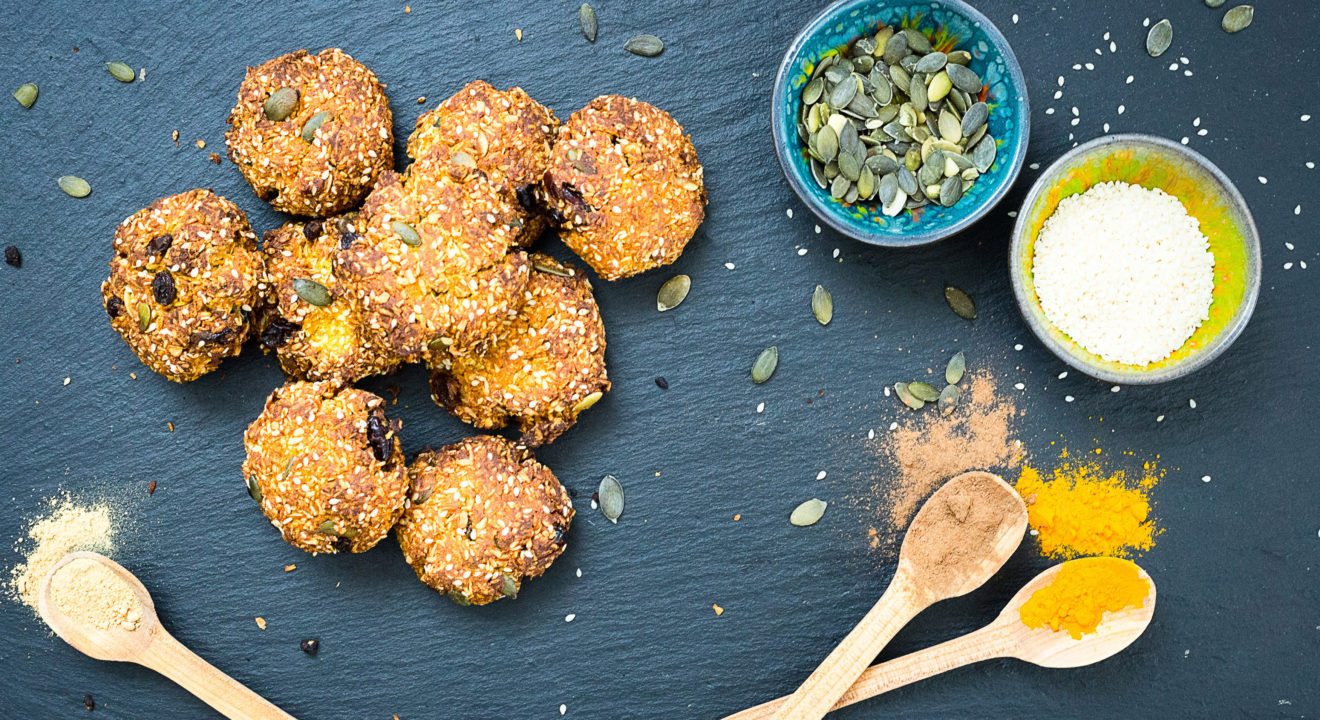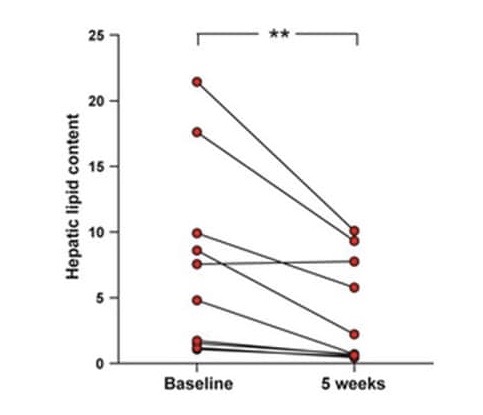Relationships February 13, 2017


When it comes to diets, the paleo diet is the ultimate throwback. In fact, proponents of this diet claim that they eat like our Paleolithic ancestors did. However, the cavemen may have evolved and died out for a reason…and going paleo might not be as life-changing as you think.
Is the paleo diet as healthy as it is popular? And is the paleo diet really what our ancestors lived off of, thousands of years ago? To find out just how evolutionarily accurate and nutritionally helpful the paleo diet really is, ENTITY recently talked to various experts, ranging from Dr. Daniel Lieberman, professor of biological sciences at Harvard and author of “The Story of the Human Body,” to Dr. Kellyann Petrucci, nutritionist, author and founder of PaleoPractice.com.
Thinking of going paleo – or just curious about whether this diet is legit? Here’s what you need to know.
To put it simply, the paleo diet restricts people’s food consumption to the foods assumedly eaten by early humans, which is fish, vegetables, fruits, starchy tubers, fats, raw nuts/seeds and meat. That’s right – say goodbye to dairy, grains, legumes and any processed foods (especially with sugar). Some advise that fruit consumption also be watched, while others say fruit and honey in moderation is A-OK.
There isn’t a specific birthday for the paleo diet, either, but rumor has it that paleo diet ideas have been floating around since the 1960s. The first paleo literature, though, probably appeared in the 2000s, ranging from “NeanderThin” in 2000 to “The Primal Blueprint” in 2009 to The Paleo Kids Cookbook in 2016.
READ MORE: 9 Cooking Shows Every Foodie, Wanna-Be-Chef or Master Chef Should Watch
There aren’t any exact numbers about how many people are pulling a dietary caveman either. However, just searching “paleo diet” on Google trends shows how much its popularity has grown in the last few years. In 2016, the paleo diet was also included in the U.S. News’ 2017 report on the healthfulness of 38 diets, ranging from household names like Weight Watchers to diets found at the back of medical journals. Of course, the paleo diet was ranked 36th – but it’s inclusion still speaks to the amount of fans (and research) the diet has received in recent years.
When you ask paleo advocates for the rationale behind their diets, it will probably be something like this blurb from Paleo Plan: “We started eating the Paleo way about 2.5 million years ago, and then we drastically changed our diets about 10,000 years ago when we began cultivating grains and legumes. That’s not much time for evolution to catch up with us, meaning our bodies are still most adept at eating the way we used to eat: meat, vegetables, fruits, and some nuts and seeds.”
So, there are two parts to this argument but, for now, we’ll just focus on the first point: the paleo diet is how our ancestors really ate.
According to Dr. Daniel Lieberman, this claim is only partly true. “There was no one Paleolithic diet,” he says. “The Paleolithic period lasted more than 2.5 million years, and hunter-gatherers lived in an amazing diversity of environments.”
Dr. Karen Hardy, a research professor at the Autonomous University of Barcelona who focuses on pre-agrarian (farming) diets, agrees. In 2015, she was part of a group of researchers to publish an article on the importance of carbohydrates in human evolution; soon afterward, she received criticism from the paleo community who believed the research directly attacked their dietary values. Hardy’s response? “‘The Paleo Diet’ is an artificial construct that has limited demonstrable overlap with what we can confidently state our Paleolithic ancestors ate.”
READ MORE: Should Modern Women Eat Organic Foods? Watch This Video to Find Out!
Like Dr. Lieberman, Hardy’s research has shown that humans from the Paleolithic era had different diets because they “were not only spread across many different climactic and environmental regions, but they also had to be able to adapt to the changing conditions [of several Ice Ages and warmer periods].” Sure, some early humans may have relied upon meat and nuts to survive. However, others – like those in Atapuerca, Spain – have been found to eat “grains of grasses, i.e, the ancestors of cereal-type foods.”
Even Krista Scott-Dixon, a self-proclaimed “paleo-ish” eater and the Director of Education at Precision Nutrition (a renowned nutrition program and company), emphasizes that “in North America, we’ve translated the paleo concept into foods that are palatable to white middle class tastes.” After all, just picture what life would really be like if you were a caveman. There would be no grocery stores or restaurants, which means you would have to grow or hunt all of your own food. Considering how dangerous hunting large game can be, Scott-Dixon believes that “microlivestock” – like bugs, snakes, turtles and small rodents – would probably be more likely to appear in early humans’ diets than steak or bison.
Just searching “paleo” on Instagram and scrolling for a few minutes reveals another evolutionary flaw of today’s paleo diet. Thanks to the plethora of paleo cookbooks and blogs that now exist (just the Ultimate Paleo Guide reveals over 100 paleo resources), people can – and are – enjoying anything they want on a paleo diet. Pizza? Cauliflower pizza to the rescue. Spaghetti? Just crack open a spaghetti squash and add some fresh meatballs. As Scott-Dixon puts it, “Our ancestors were not making coconut flour pancakes or avocado ice cream, or living on bacon.”
READ MORE: Looking Beyond the Filter of Instagram
But dang…the paleolithic period definitely sounds more appealing when you can pretend that they did!
So, from what nutrition experts and researchers have found so far, it seems like the paleo diet is not really what your great-great-great-great-(add 20 or so more greats here)-grandparents were chowing down on. However, that doesn’t mean the paleo diet isn’t healthy. Now, to consider the other claim often made my proponents like Paleo Plan: the fact that our bodies are better suited to the “paleo diet,” and that this way of eating, therefore, is healthier.
Dr. Kellyann Petrucci is the most pro-paleo expert we talked to, and she has witnessed plenty of health benefits of the paleo diet. “People who switch to a paleo diet can expect to have healthier skin and hair. The diet is loaded with foods that help build collagen and is also rich in healthy fats from foods like avocados and coconut oil, which make skin cells ‘bouncy,” she says.
READ MORE: Avocado is an AvocaGo: Our Favorite Recipes
Perhaps the more important benefit, though, is that paleo eaters “can expect to lose weight and dramatically decrease their risk for diabetes because the paleo diet eliminates carbohydrate-loaded grains and sugar.” While getting gorgeous skin and lower blood sugar just by ditching a few food groups may sound too good to be true, research has backed up claims like Petrucci’s. In fact, studies have found:


Chart via the 2013 study
All of this goes to say that, at first glance, the paleo diet is pretty awesome. Particularly if, as Dr. Kellyann points out, you ditch the “misconception that going paleo means loading your plate with bacon and huge steaks” and eat a large amount of starchy vegetables, some healthy fat and a palm-sized piece of protein at every meal (along with a small serving of fruit once or twice a day).
However, there are also drawbacks that you might not have heard about…
According to Scott-Dixon, “Constipation is a common complain…if [people] focus too much on getting meat and don’t focus enough on getting high-fiber fruits and veggies.” Like with any diet, paleo eaters can also become a little too obsessed with following their dietary guidelines, causing them to “worry about minute and irrelevant details, or punish themselves for ‘cheating’,” says Scott-Dixon.
READ MORE: A Celiac’s Diet: Some Advice on “Gluten Free” Food
There can also be dangerous health risks, with Karen Hardy’s evolutionary research concluding that “a lack of starchy food can affect your cognitive abilities (i.e., brain functioning) and not enough starchy food when you are pregnant can lower the IQ of your baby.” Not only that, but cutting out dairy – which many people have “genetically adapted” to eat without any negative consequences – could also make you calcium deficient.
For Daniel Lieberman, though, “The major logical fallacy of the paleo diet is the assumption that because we evolved an ancestral diet it is healthy. Just because our ancestors ate and/or were adapted to certain foods doesn’t mean they necessarily promote health.”
A 2013 study of four ancient civilizations backs up Lieberman’s point. People often believe that atherosclerosis – or clogging arteries – is a contemporary result of people’s sedentary lifestyles or processed diet. However, researchers found that 47 out of the 137 examined mummies had signs of the disease – meaning that going paleo might not be the panacea for bad cholesterol that you’ve been looking for.
So, should you be jumping on the paleo bandwagon (or, in the spirit of cavemen, the paleo bison) or staying far away? Most nutrition experts agree that cutting out processed foods won’t hurt you; however, going “paleo-ish” like Scott-Dixon might be a healthier, more realistic dietary change that going full-on caveman.
Because, the truth is, the paleo diet, as it exists today, isn’t truly “paleo.” It’s the version of paleo that fits our modern, everyday lives. In fact, Ferris Jabr from even claims that The Paleo Diet is “founded more on privilege than logic.” Our ancestors didn’t forage for berries and fish because they wanted, they did it because they had to.
READ MORE: Why Food Stamps Are Getting a Healthy Makeover
It’s impossible to deny the health benefits – ranging from weight loss to type 2 diabetes management – that the paleo diet has been shown to have. However, it’s also impossible to say that trading pancakes for protein pancakes is really what our paleolithic ancestors had in mind.